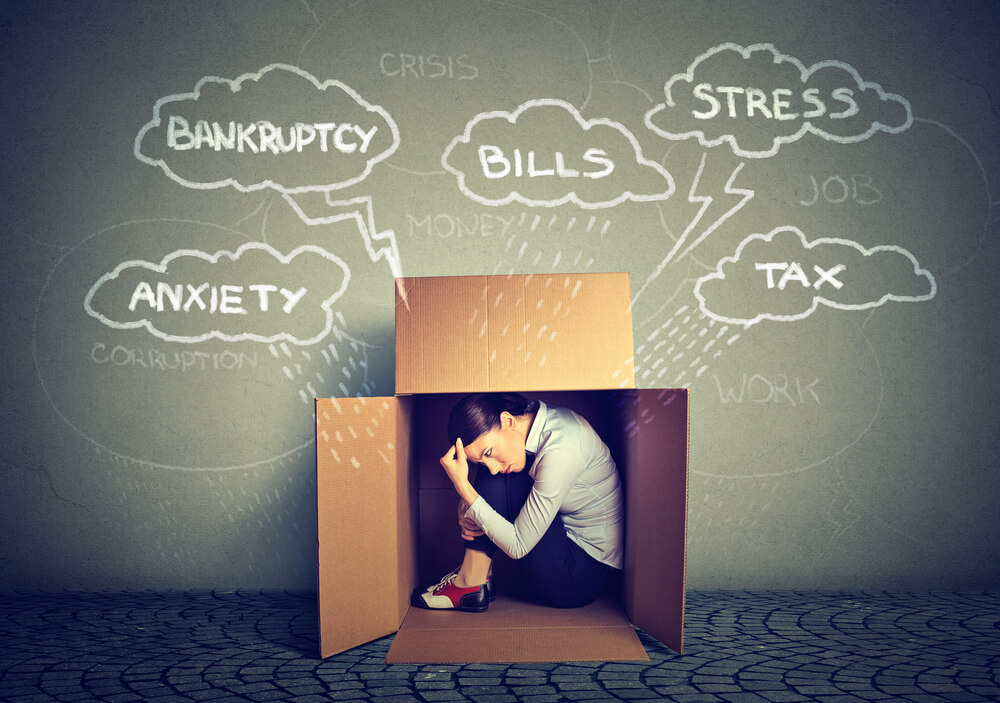
If financial concerns have been present in your life as of late, you’re not alone. Millions of people are dealing with money matters daily and is a very common cause of stress in adults.
While worrying won’t do you any good, you can’t help thinking about your situation and how it will pan out in the future. Dealing with financial stress has been linked with so many health issues; now is the time to take action and be more proactive about your finances.
Know the Root Cause
Why are you even feeling stressed out in the first place?
For many, thinking about the main reason why they’re experiencing financial stress can be a hard pill to swallow. There are some who would prefer to put the blame on others and refrain from taking responsibility about their finances. Common reasons why people are in distress include being in debt, not earning enough, child rearing is expensive, or being in a relationship with someone who isn’t financially adept.
Impact On Your Health
Don’t underestimate how stress can affect your overall health and wellbeing. Some negative effects of stress may include:
- Mental health: Sad truth — finances and mental health are often intertwined so when your financial matters are not doing so well at the moment, it’s pretty safe to say that you have been mentally exhausted. Mental stress can lead to anxiety and depression.
- Physical health: Anxious about where you’ll get the money to pay off your debt? If you think that anxiety and depression only affects your mental health, you’re in for a rude awakening. Your entire body reacts to stress and too much of it can bring about health issues such as migraines, heart disease, diabetes, and such.
- Healthcare: When money is tight, who has the budget to even go see a doctor? A negative effect of financial stress is delayed healthcare. People put off going to the doctor because they can’t afford it or they would rather use the money to pay off debt.
- Unhealthy coping mechanisms: Stress of any kind can lead people to cope with it in unhealthy ways — alcoholism, drug use, overeating and smoking become awful habits that are not only bad for you but are also expensive.
- Insomnia: Tossing and turning at night? Insomnia and other sleep related disorders can develop when you’re not financially stable.
- Social withdrawal: As much as you want to spend time with friends and family, when you don’t have the means to do so you have no choice but to decline invitations. Not being able to spend time with those who matter to you could lead to even more stress.
- Relationship issues: One of the top reasons why couples argue and fight is due to money management — or lack thereof. For some it becomes so bad that they end up filing for divorce.
How To Deal With Financial Stress
Thankfully there IS a way out. Break the cycle and gain back control in your life with these tips from JMA:
Open Up
It helps when you have someone you can talk to regarding your problem. People tend to keep such issues to themselves and would rather deal with it by themselves. In fact, the topic of money is often treated as “off limits” or taboo for some. Here’s the thing though: containing your feelings to yourself can make things more difficult for you. Talking to someone can act as stress relief and will even force you to look at the bigger picture.
It’s important to talk openly with someone whom you can trust and won’t pass judgement. Make it clear to them that you don’t expect them to help you with your problems and that you need someone to talk to. Be honest with them and yourself about your situation. For some people, hearing themselves voice out their thoughts and feelings can change the way they see their situation. They might even provide solutions to help alleviate your problems.
Identify What Needs Your Attention
Sit down and take time to list down things that need your attention the most. Is it the rent? Credit card debt? When you know what’s draining you, you have a clearer idea of what needs to be done.
Devise a Plan and Create a Budget
Now that you know what needs your attention the most, come up with a plan and budget for the next year or so (depending on how big your debt is).
When you’re budgeting, list down expenses that never go away (i.e. housing, food, transportation, etc.) as these are things that you will always have to pay for. Next, set aside a specific amount of money dedicated to paying off your debt. Be realistic about how much you can set aside for it.

What Can You Change?
Now would also be a good time for reflection — how did you incur such financial problems in the first place? You might have invested at the wrong time and the business went bust or you might have a bad spending habit; regardless of the reason, be honest with yourself. You might consider getting professional advice for this as this could be a habit that might be difficult to change.
Track Your Progress
You won’t be able to feel any effects until you’re a few months into your new lifestyle but it’s still important to track your progress every so often. There are helpful apps that can show you how much you’ve saved or if you have stayed within your set budget. Take advantage of your bank’s online auto-debit features when it comes to paying off bills or debt. You can set an amount and have your account automatically deduct it every month.
Get Extra Sources of Income
Your financial stress is stemmed from lack of money so why not seek other sources of income during your free time? Decide on doing something that can also provide stress relief. Take advantage of other skills that are not needed at work. For example, you might have a knack for art — why not draw and sell your work online? Just make sure that you’re getting into something that won’t be an added stress for you.
Manage Your Stress
Getting rid of your problems takes time. Results don’t come overnight. Don’t forget to take care of yourself while you’re resolving money issues in your life.
- Be more active. Try to exercise at least 3 times a week. Just a bit of regular exercise can be beneficial. It can improve your mood and energy levels.
- Look into your diet and try to eat more healthy food. Refined sugars and sodium can actually make you feel worse overall especially in high amounts, not to mention the potential weight gain from overeating. Fruits and vegetables can help you feel good about yourself even on your bad days.
- Adopt a relaxation technique such as meditation, prayer, or breathing exercises. When things become overwhelming, having a relaxation technique can help you beat the effects of stress.
- Get quality sleep. While it may be difficult to get some shut eye when you’re riddled with financial woes, sleep can actually help you think and perform better during your waking hours. Avoid food or drinks that contain caffeine at least 6 hours before you sleep. Turn off your cellphone when it’s time to sleep and read a book instead.
- Stay positive and practice thankfulness. Despite your problems, you still have so much to be thankful for. You’re healthy enough to be working; you have family and friends that support you; and you can still do something about your situation.

Talk to Your Creditor
Don’t be afraid to negotiate with your creditor about paying off your debt. Be honest with your situation and ask for better payment schemes that you can follow. When they see a client willing to pay off their debts, most creditors will be more than willing to help out wherever they can.
Take Steps To Financial Freedom
Remember that this is not the end. You have ran into a roadblock at the moment but see this as a learning experience. For business related debt and debt collection, JMA Credit is here to help those who are struggling to make ends meet. With decades of experience under our belt, we are here to help you in any way we can.





















